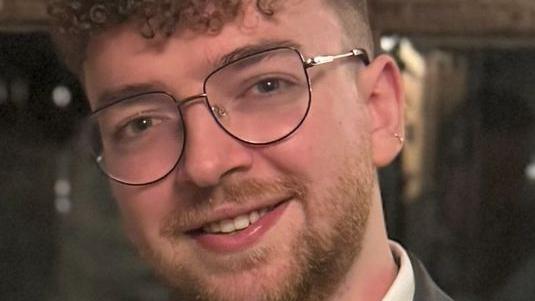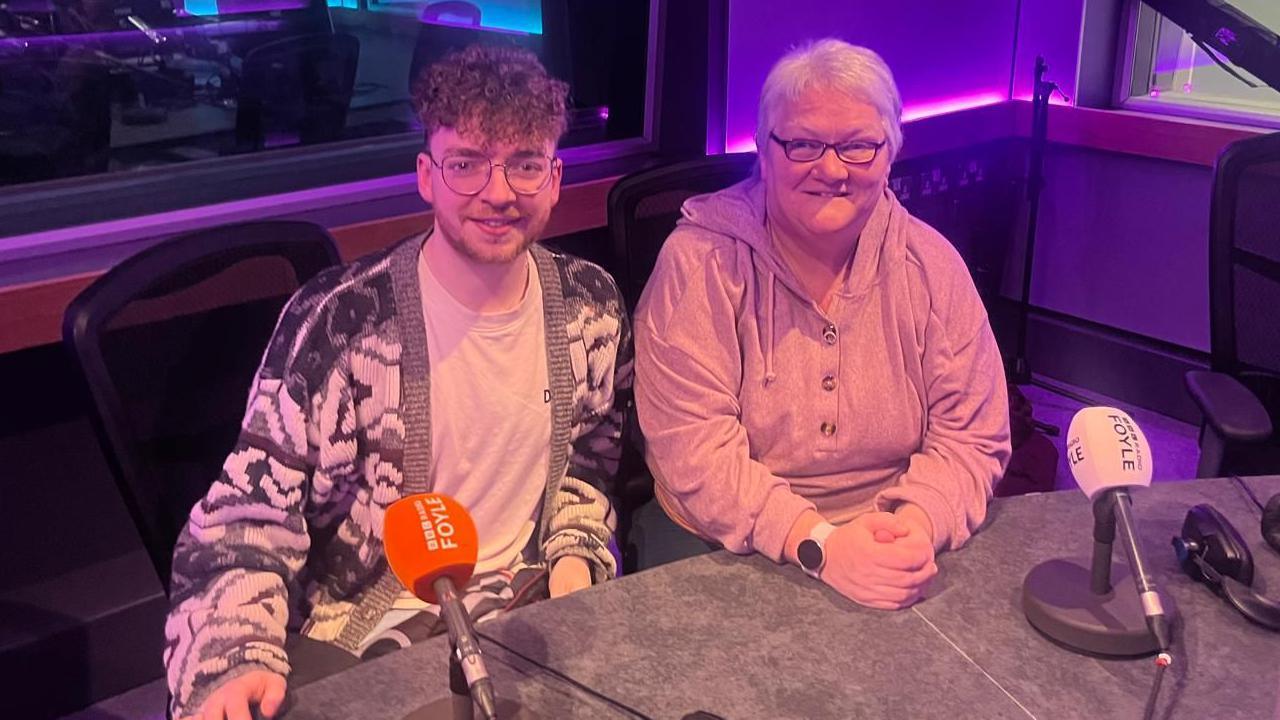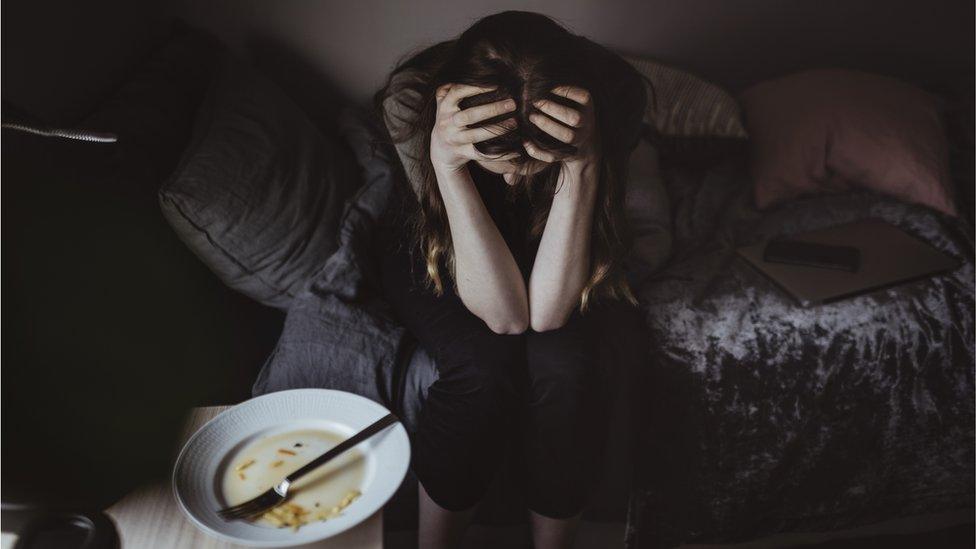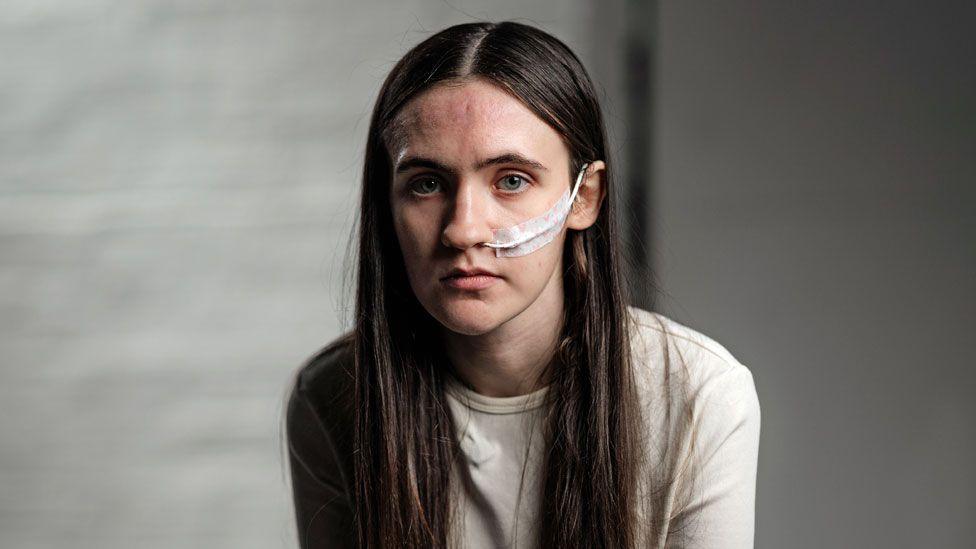Anorexia made me hide in toilets at meal times - but it's OK to talk about it

Conor Doherty developed an eating disorder when he was aged 13
- Published
A 27-year-old man who developed anorexia as a teenager has said he used to hide in school bathrooms at meal times and avoided family events because he was "too scared to eat in front of people".
Conor Doherty, from Londonderry, said his eating disorder started when he was just 13 years old.
He said he tried to keep his illness secret from family and friends, and that his condition robbed him of "family memories", like attending his younger brother's first communion, because he did not want to be put in a situation where there was food.
Mr Doherty's personal experiences, and those of people he has met with eating disorders, have helped him create a new play.
'I had a lot of shame'
He believes there are a number of factors which contributed to him developing an unhealthy relationship with food.
"I dealt with a lot of grief when I was younger, I lost a lot of important people in my life," Mr Doherty told BBC Radio Foyle's North West Today programme.
He was also bullied in school.
He said he began avoiding meals at home and school as a teenager.
"An eating disorder is a secret mental illness, I had a lot of shame," he said.
"I wouldn't eat in school - I had these rules in place that I would never break, it was like a burning sensation inside my body that I could never get rid of.
"I used to hide in school toilets because I was too scared to eat."
He described times being so weak he could not lift his school bag and missing out on big family events.
"I didn't go to my brother's first communion or his confirmation because I was too scared to eat in front of people.
"I find it very difficult to talk about but I want young people to know that it's OK to talk about these things."

Conor Doherty pictured in the BBC Radio Foyle studio with Maureen Wilkinson who is also involved in the play, A Walk In The Park
Sharing his story led to about 70 others sharing their stories too.
These eating disorder stories shaped A Walk In The Park.
The play's lead character, a 16-year-old boy, is based on "a mix of so many people's stories", he said.
Mr Doherty said he felt let down by the health service and wants more to be done.
"An eating disorder is not just a weight-based issue, it's a mental health illness," he said.
"I know people that have had eating disorder treatment and what they got was a feeding tube until they were a manageable weight and then they were discharged.
"They had no psychiatric help to cope with the actual problem.
"The problem is in your mind, the problem is what you feel around food and how you feel when you consume food."
Support services
The Department of Health (DoH) said there are a number of support services available to people experiencing eating disorders.
"There are currently four eating disorder youth service teams and four adult eating disorder service teams across five health trusts," a department spokesperson said.
"The treatment approach is primarily psychological therapies, and these teams provide a range of community-based, evidence-based treatments as per National Institute for Clinical Excellence (NICE) guidance.
"The Mental Health Strategy includes a commitment to enhance regional eating disorder services and a regional clinical lead and manager have been appointed, and they are in the planning stages of establishing a regional eating disorder managed care network."
More young men seeking help
Northern Ireland's national lead for Beat, a charity for people experiencing an eating disorder, said eating disorders can effect anybody.
Nicola Armstrong said about 1.25m people in the UK suffer from a type of eating disorder and about one quarter of those are men.
She said they have seen more and more young men coming forward seeking help.
"Sadly, there is still a stereotype that eating disorders only effect young women and that can be particularly dangerous because it can mean men seeking help much later."
If you have been affected by anything you have read in this article, you can find information and support over on the BBC Action Line website.
- Published16 September 2021

- Published10 February

- Published8 June 2024
